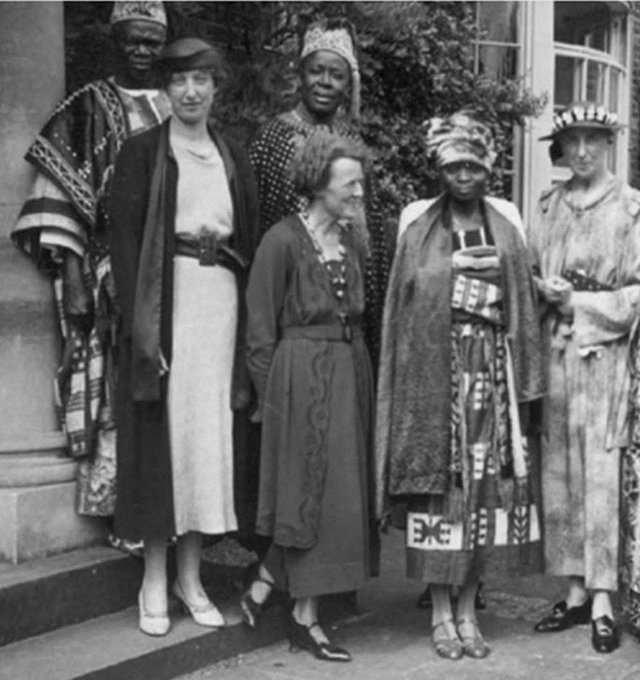Blog
Black History is World History.
19th October 2020
Hi! My name is Ruth and I joined TLG in September, as Executive Assistant to the Director of National Development (Sian Wrangles). I may not have been here for very long, but I am loving life at TLG. It is wonderful to be part of an organisation which cares so deeply about social injustice and is committed to providing hope and a future to underprivileged children and families across the country.
One of the most refreshing things I have found since coming to TLG, is that the drumbeat here is not only attuned to the pulse of economic justice. It is attuned to the rhythms of cries against racial injustice, against gender inequality… A commitment to social justice in all its forms reverberates through the heart of TLG.
This might seem like common sense – and it is. As a Christian charity, one of the indisputable tenets we stand on is the belief that all human beings are created in the image of God, and have a purpose and inestimable value.
Unfortunately, however, throughout history, some human beings have treated other human beings with little to no dignity or respect. The treatment of black people is a case in point. Slavery, colonisation, Jim Crow laws, the apartheid, and many other systemic forms of racial oppression echo through antiquity. In the present day, structural racism often goes unchallenged but hits the headlines when the Ahmaud Arberys, George Floyds and Breonna Taylors are unlawfully killed.
Racism is not new. It did not begin with the murder of George Floyd.
When we talk about the importance of studying history, we inevitably allude to the importance of understanding the way the world used to be, in order to better decipher the world in which we live today.
"Those who do not remember the past are condemned to repeat it." - George Santayana
So it is with racism. In order to better comprehend how we got to the place we are in today, we need to learn about and reflect on the past – however uncomfortable it may be to do so.
Though born and raised in Britain, a country that colonised at least 102 countries across the globe, I never once learnt about colonisation in school. When we learnt about the atrocities of slavery, we were schooled only in the United States’ role in the transatlantic slave trade – despite the reality that, for hundreds of years, Britain was the most dominant slave-trading country in the world. This repetitive act of omission has engendered an embarrassing ignorance vis-à-vis matters of racism in this country.
Colonial history is British history. The history of slavery is British history.
More than that, colonial history and the history of slavery are part of world history.
October is Black History Month in the UK; however, at TLG we are working towards a curriculum where ‘Black history’ is integrated throughout the year. It should no longer be pushed to the side and segregated. It should be blended into the narrative of our national consciousness.
The history of black people undeniably goes beyond slavery and colonisation. Yet, even when we do remember these scars on our history, our national memory is very selective.
We know the name William Wilberforce. How many times do we hear of Olaudah Equiano, Ignatius Sancho, or Mary Prince? Olaudah was born a slave in what is now Nigeria and bought his own freedom, before becoming an abolitionist. Ignatius was reportedly born on a slave ship but rose in the ranks to become a business owner and the first person of African descent to vote in a British general election. Mary Prince is especially unusual in that she was a black woman whose words were penned, published, and heeded. Her autobiographical narrative constituted a key work in the anti-slavery campaign.
Centuries before Meghan Markle, there was Queen Charlotte, who is believed to have been mixed-race.
Queen Victoria had a black goddaughter.
Henry VIII had a black trumpeter in his courts.
The list goes on*…
Sadly, black history has largely been whitewashed over, and many of us therefore grow up with a myopic perspective of our own history.
This is more than sad. It is damaging.
As a black child in a British school, the perspective you are likely to gain is that people who look like you are destined to be second-class citizens. If the vast majority of what you learn about black people is that they were chained in overcrowded ships, beaten, raped and forced into labour, you develop a very limited view of yourself. If the only times you see black people celebrated are when they are campaigning against racism, then it is easy to think that this is the best you can achieve. We do ourselves and our young people a disservice when we present a selective history. Not only is this self-denigrating for black people, it legitimises racial stereotypes.
Black people fought for Britain in the world wars, helped build the British NHS, and continue to enrich British culture and society today.

Second-right: Lady Ademola, the first black African woman to graduate from Oxford University.
And that’s just black people in Britain! I haven’t talked about Sojourner Truth and Harriet Tubman – two of my heroines from across the pond; determined black women whose faith in God was their anchor as they helped their people to freedom.
As a black woman, I cannot overstate how important black history is to me. It reminds me of how much the people whose blood runs through my veins have overcome over the centuries; it shows me how much we are capable of; and it fills me with hope for what is possible in the future.
Yet, black history does not belong just to people like me; it belongs to us all.
*I’d recommend watching 'Black and British: A Forgotten History' on BBC iPlayer, to get a longer list.

